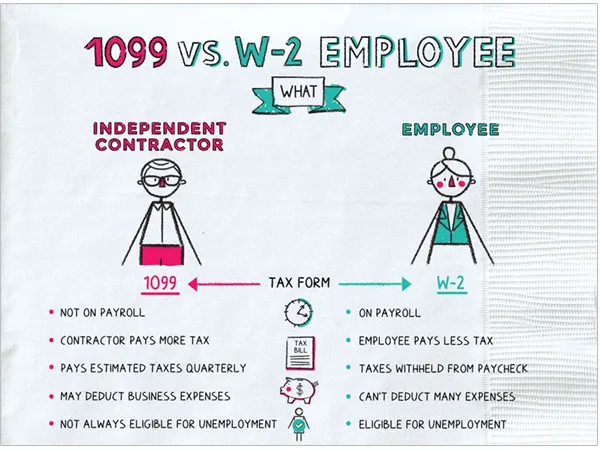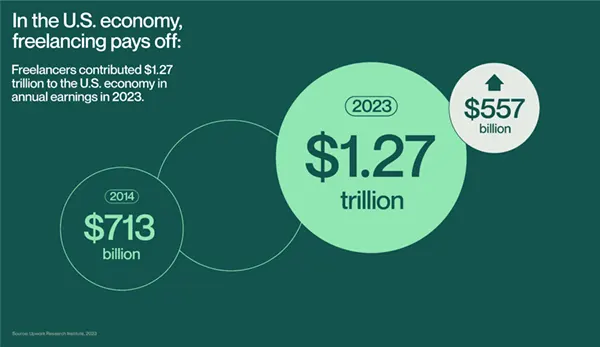Utilizing Technology to Optimize Tax Filing Processes for Freelancer Finances
You know, the life of a freelancer might seem pretty amazing.
It gives you great freedom and flexibility to work at your convenience, and you also get to be your own boss.
In a digital space, working and making a living through freelancing might seem like a dream.
But it is the small things that don’t catch your eye that can be quite worrisome. Also, learn about Investors & Finance Enthusiasts with this guide.
You know, all this freedom and flexibility brings with it some responsibilities that just cannot be left alone or ignored, and the main one of them is the taxes.
So, if you’re thinking of becoming a freelancer, you need to learn how to manage your finances as well as register and file taxes all on your own.
Just navigating through the complexities of self-employment taxes, deductions, and quarterly estimates can give even the most organized freelancer a run for their money.
But, lucky for you, it’s 2024 and it can be easy to find a ton of tools and calculators online to help you dominate your tax game this season so that you can get the most out of it.
1099 vs. W-2’s, Which One Do You Need to Pick?
You know, the most difficult thing about being a freelancer is that you need to take care of all the things that an employer would normally do for you.
And, this can include anything from withholding some money from your paycheck for FICA taxes along with 401(k) contributions to paying for all your healthcare premiums, as well as some other things.
And that’s not all.
Did you know that your employers also took out an estimated portion of your paycheck to pay for your federal income tax?
So, before you dive straight into the world of freelancing, you need to better understand your tax classifications.
The 1099 employee taxes can be very different from the W-2 employee taxes.
And as a new freelancer, you’ll most likely be a 1099 contractor, meaning you are the one who’s responsible for paying your own taxes.
On the other hand, W-2 employees can usually have their company handle all these things for them.
This means that you’ll be facing the full brunt of Social Security and Medicare contributions, along with income tax.

But how do you actually go about calculating taxes for your freelance job?
Figuring Out Taxes With Online Calculators
When you’re just starting out, making heads or tails out of things can be very hard.
This can be especially true for many freelancers.
They pretty much need to figure out their tax liabilities all on their own.
But, it’s 2024, and today, you can easily find a ton of online tools and calculators that can help make filing and calculating your taxes a lot easier.
Here are some of the online calculators that many freelancers use to figure out their tax liabilities.
1. W-2 vs. 1099 Calculator
If you’re unsure of your tax classification, then this handy tool can help in analyzing your income, expenses, and deductions to pick what classification you need to choose based on your situation.
This tool can help new freelancers make the most of their tax savings and get clarity on their responsibilities with just a few clicks.
2. Self-Employment Tax Calculator
Figuring out the self-employment tax liability can be hard for even the most experienced freelancers.
This means that if there is even a hint of a mistake in your filings, you’ll be looking at some hefty fines from the tax authority.
DID YOU KNOW?
The self-employment tax is a 15.3% tax on your freelance income, and it solely exists to cover your Social Security and Medicare taxes
And, it can also lead to penalties from the tax authority if not done properly.
Most freelancers have to bear the financial burden of covering the taxes for their own Social Security, and Medicare too.
You know, the Self-Employment Tax Calculators can help you get over the burden of paying these penalties in the first place
This is your weapon against underpayment penalties.
All you’d need to do is simply enter your income, deductions, and other financial details, and the calculator will spit out your exact self-employment tax liability.
Now you can budget effectively and avoid year-end surprises.
3. Quarterly Tax Calculator
Hey, did you know that aside from paying all these taxes, you need to send in your quarterly tax payments to the IRS (Internal Revenue Service) as well?
While regular salaried employees have their taxes deducted from their paychecks for this on an annual basis, freelancers need to do this on their own.
But, gone are the days of scrambling with quarterly estimated payments.
With online quarterly tax calculators, you can easily file your quarterly taxes with ease.
These calculators factor in your income, deductions, and tax credits to deliver precise payment figures.
So you can always stay on top of your tax obligations and avoid interest charges with this valuable tool.
Take Advantage of Digital Filing
The days when you spent days figuring out and filling out paper forms throughout the night to meet the tax deadlines are pretty much all gone.
Today, with the help of online tax filing platforms, you can easily streamline the whole process.
These platforms can help you through the whole filing process and make sure that you can claim all eligible deductions and credits from your taxes.
They even allow you to integrate with accounting software to import your income and expense data seamlessly.
These digital advancements have made sure that you do not need to spend time manually filing and checking each tax form for errors.
And keep in mind that, if the complexities of tax filing leave you feeling overburdened, you can always think about consulting with a qualified tax professional.
They can offer personalized advice and ensure you’re maximizing your deductions and minimizing your tax burden.
a qualified tax professional. They can offer personalized advice and ensure you’re maximizing your deductions and minimizing your tax burden.
If the complexities of tax filing leave you feeling overwhelmed, consider consulting

Freelancers contributed $1.27 trillion to the U.S. economy in annual earnings in 2023. This was a 78% increase from the estimated $715 billion to the economy in 2014, the first year of the study.
Conclusion
The life of a freelancer may be alluring but it comes with its own box of worms that can feel pretty overwhelming for newbies.
Freelancers need to understand what their tax liabilities are, as they need to take care of all the things that an employer would usually do for their employees.
From registering and filing for taxes to covering Medicare and Social Security, among other things, all need to be handled by the freelancers themselves.
But, with the help of the latest technological innovations, like online calculators and tax filing services, you can focus on the things that matter the most.
